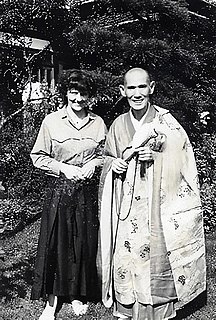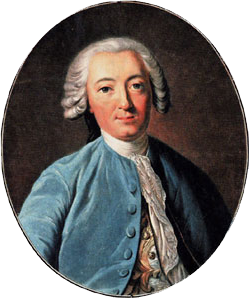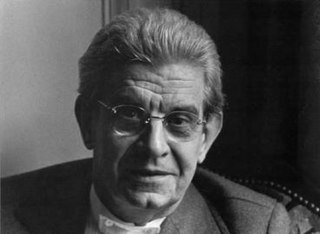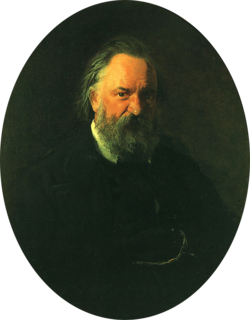Top 1200 Passions Quotes & Sayings
Explore popular Passions quotes.
Last updated on April 13, 2025.
Men are admitted into heaven not because they have curbed and governed their passions or have no passions, but because they have cultivated their understandings. The treasures of heaven are not negations of passion, but realities of intellect, from which all the passions emanate uncurbed in their eternal glory.
Why should we desire the destruction of human passions? Take passions from human beings and what is left? The great object should be not to destroy passions, but to make them obedient to the intellect. To indulge passion to the utmost is one form of intemperance - to destroy passion is another. The reasonable gratification of passion under the domination of the intellect is true wisdom and perfect virtue.
What a mistake to suppose that the passions are strongest in youth! The passions are not stronger, but the control over them is weaker! They are more easily excited, they are more violent and apparent; but they have less energy, less durability, less intense and concentrated power than in maturer life.
I have often felt as though I had inherited all the defiance and all the passions with which our ancestors defended their Temple and could gladly sacrifice my life for one great moment in history. And at the same time I always felt so helpless and incapable of expressing these ardent passions even by a word or a poem.
By directing our sentiments, passions, and reason toward the common human plight, imagination grants us the advantages of a moralexistence. What we surrender of innocent love of self is exchanged for the safeties and pleasures of belonging to a larger whole. We are born dependent, but only imagination can bind our passions to other human beings.
It is a mighty error to suppose that none but violent and strong passions, such as love and ambition, are able to vanquish the rest. Even idleness, as feeble and languishing as it is, sometimes reigns over them; it usurps the throne and sits paramount over all the designs and actions of our lives, and imperceptibly wastes and destroys all our passions and all our virtues.
Thus, experience has ever shown, that education, as well as religion, aristocracy, as well as democracy and monarchy, are, singly, totally inadequate to the business of restraining the passions of men, of preserving a steady government, and protecting the lives, liberties, and properties of the people . . . . Religion, superstition, oaths, education, laws, all give way before passions, interest, and power, which can be resisted only by passions, interest, and power.
The one who wants to love God has to take care about the purity of the soul, first of all. This purity is attained through conquering the passions. (The one who has not conquered the passions cannot enter) the chaste and pure region of the heart. Do not hate a sinner, for we all are to be responsible.
A man who gives way to his passions is like a man who is shot by an enemy, catches the arrow in his hands, and then plunges it into his own heart. A man who is resisting his passions is like a man who is shot by an enemy, and although the arrow hits him, it does not seriously wound him because he is wearing a breastplate. But the man who is uprooting his passions is like a man who is shot by an enemy, but who strikes the arrow and shatters it or turns it back into his enemies heart.
Behold, O Lord, that I am indignant with myself, for my senseless, profitless, hurtful, perilous passions; that I loathe myself, for these inordinate, unseemly, deformed, false, shameful, disgraceful passions; that my confusion is daily before me, and the shame of my face hath covered me. Alas! woe, woe! O me, how long?
The purpose of adolescence is to revise the past, not to obliterate it. . . . Adolescence entails the deployment of family passions to the passions and ideals that bind individuals to new family units, to their communities, to the species, to nature, to the cosmos. Therefore, given half a chance, the revolution at issue in adolescence becomes a revolution of transformation, not of annihilation.
It is difficult to say which is the greatest evil--to have too violent passions, or to be wholly devoid of them. Controlled with firmness, guided by discretion, and hallowed by the imagination, the passions are the vivifiers and quickeners of our being. Without passion there can be no energy of character. Indeed, the passions are like fire, useful in a thousand ways, and dangerous only in one--through their excess.
We must not only put bodily passions to death but also destroy the soul's impassioned thoughts. Hence the Psalmist says, 'Early in the morning I destroyed all the wicked of the earth, that I might cut off all evil-doers from the city of the Lord' (Ps. 101:8) - that is, the passions of the body and the soul's godless thoughts.
An immoderate fondness for dress, for pleasure, and for sway, are the passions of savages; the passions that occupy those uncivilized beings who have not yet extended the dominion of the mind, or even learned to think with the energy necessary to concatenate that abstract train of thought which produces principles.... that women from their education and the present state of civilized life, are in the same condition, cannotbe controverted.
The true clerc is Vauvenargues, Lamarck, Fresnel, Spinoza, Schiller, Baudelaire, César Franck, who were never diverted from single-hearted adoration of the beautiful and the divine by the necessity of earning their daily bread. But such clercs are inevitably rare. The rule is that the living creature condemned to struggle for life turns to practical passions, and thence to the sanctifying of those passions.
It is one thing to be delivered from bad thoughts, and another to be freed from the passions. Often people are delivered from thoughts, when they do not have before their eyes those things which produce passion. But the passions for them remain hidden in the soul, and when the things appear again the passions are revealed. Therefore it is necessary to guard the mind when these things appear, and to know toward which things you have a passion.















































